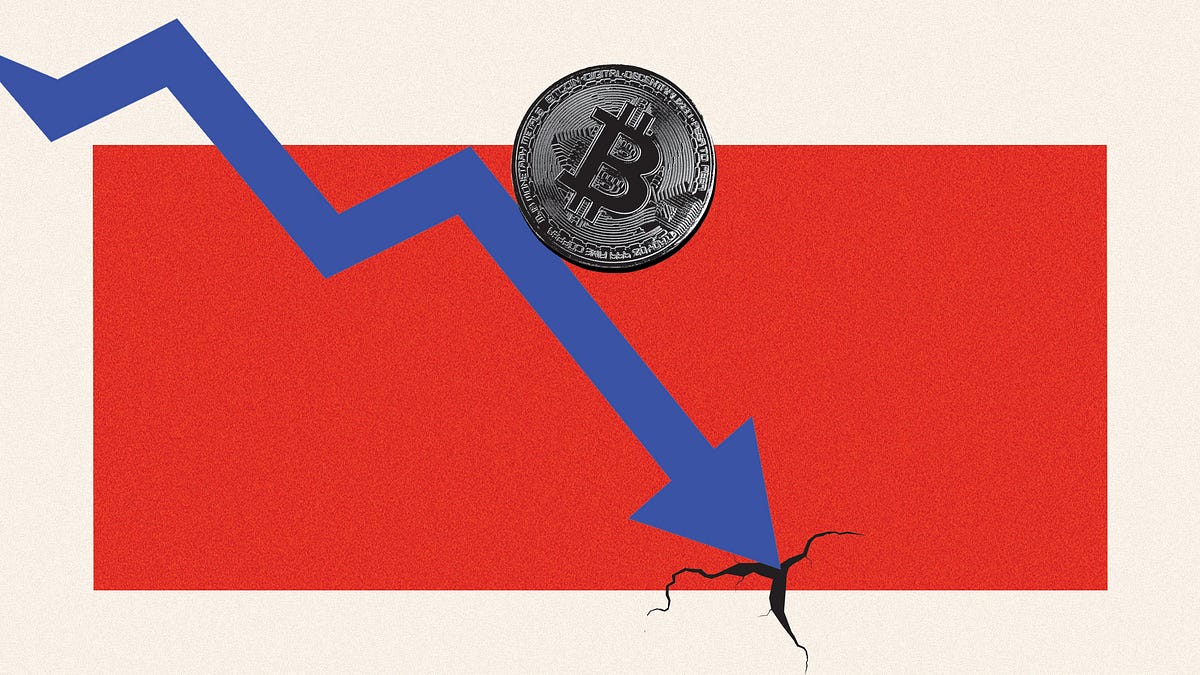Key Week for Bitcoin and the Dollar Index
This week's slew of U.S. economic data will determine whether the dollar continues to weaken, potentially benefiting BTC and other risk assets.
- Tuesday's manufacturing data is likely to show continued contraction, indicating weakness in the dollar index and strength in Bitcoin.
- Traders should be cautious of a potential August-like growth scare in risk assets.
- Friday's jobs data could further extend dollar weakness, according to ING.
Bitcoin (BTC), the leading cryptocurrency by market value, fell over 10% in the week leading up to September 1, reversing the previous week's price bounce as the decline in the dollar index stalled.
The upcoming economic releases start with the Institute of Supply Management's (ISM) manufacturing purchasing managers' index (PMI) for August. ForexLive forecasts the index to rise to 47.5 from July's 46.8, which indicated the sharpest contraction in factory activity since November 2023.
A weak reading could strengthen the case for the Federal Reserve to cut interest rates, which would likely send the dollar lower and increase demand for riskier assets. Interest-rate markets are already pricing in a 70% chance of a 25 basis point cut and a 30% chance of a 50 basis point cut in September, according to CME's FedWatch tool.
"Rate cuts are good for BTC, as it is particularly sensitive to monetary liquidity conditions (seen as a risk asset, with no cash flow or margins to get hit in a slowdown)," said Noelle Acheson, author of the popular newsletter Crypto Is Macro Now.
A weaker U.S. dollar boosts monetary liquidity by lowering the cost of capital. Expectations of continued dollar weakness highlight the utility of a dollar hedge and should enhance spending power in other jurisdictions. Furthermore, the dollar is the denominator of the most-quoted pair (BTC/USD).
However, July's weaker-than-expected ISM PMI triggered recession fears, negatively impacting risk assets even as the dollar dropped. BTC fell 3.7% to $62,300 that day, indicating that traders should be wary of a potential "growth scare" should the PMI come in worse than expected.
Nonfarm Payrolls Due Friday
ForexLive analyst Giuseppe Dellamotta noted that the employment sub-index fell to a new 4-year low ahead of the NFP report, which led to selling in risk assets as it came out weaker than expected.
Later this week, focus will shift to JOLTS job opening data on Wednesday, ISM services PMI, ADP, and weekly jobless claims on Thursday, culminating in the August nonfarm payrolls (NFP) report on Friday.
If the consensus about Friday's jobs report (165,000 job gains and a drop in the unemployment rate to 4.2%) is accurate, market pricing will likely firm up a 25bp cut as the start of the Fed easing cycle on September 18. Conversely, if the payrolls show only 125,000 additions and an uptick in the jobless rate to 4.4%, this could lead to a continued drop in the U.S. dollar.
From a technical analysis perspective, BTC appears defensive ahead of key data releases, with indicators like the MACD histogram signaling strengthening downside momentum.
Analyst Valentin Fournier from BRN stated, "Technical indicators suggest that the bearish momentum may persist, with the MACD showing increasingly negative momentum and the RSI at a neutral level. The lower band of the Bollinger Bands remains around $56,000, indicating potential further declines toward this level."





Comments
Join Our Community
Sign up to share your thoughts, engage with others, and become part of our growing community.
No comments yet
Be the first to share your thoughts and start the conversation!